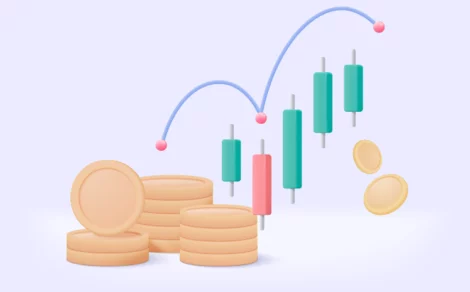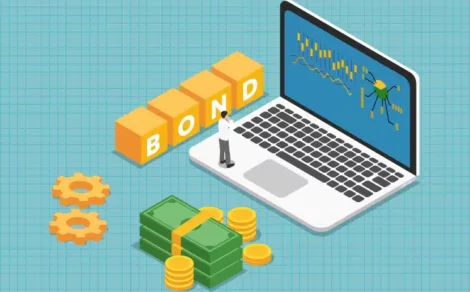Yes, Fixed Deposits (FDs) are a type of fixed income investment. They offer a fixed return for a set time and are safe, especially when done with trusted banks.
If you want to grow your money without taking big risks, fixed income securities might be the right choice for you. Fixed income securities are investment options that offer consistent returns over a set period, making them ideal for those who prioritise stability over high-risk, high-reward strategies. Unlike shares or mutual funds, these securities focus on preserving capital while generating steady income, which makes them especially appealing during uncertain market conditions.
In this article, we’ll explain what are fixed income securities, how they work, the different types, and their benefits and risks.
What Are Fixed Income Securities?
Fixed income securities meaning refers to investments that give you a fixed amount of income at regular intervals, like monthly, quarterly, or yearly, for a set duration. This end date is called the maturity date. When the investment ends, you also get back the full amount you originally put in. When you put your money in a fixed income security, you’re basically lending your money to the government, a bank, or a company. In return, they promise to pay you interest regularly and repay your money at the end of the agreed period.
These types of investments are known for being safer and more stable compared to shares. That’s why many people, like retirees or low-risk investors who want stable and predictable returns, choose fixed income securities.
How Do Fixed Income Securities Work?
Fixed income securities work on a simple idea, i.e., you lend your money, and in return, you get paid interest regularly. Then, after a set period, you get your full money back. Let’s understand it step-by-step:
- An Organisation Needs Money: This could be a government, a bank, or a company. Instead of taking a loan from a bank, they choose to raise money from the public by issuing fixed income securities.
- You invest in these securities: When you buy a fixed income security, you are basically giving your money to that organisation for a specific time period. This amount is called the principal or face value.
- You earn regular interest: In return for using your money, the issuer pays you interest monthly, quarterly, half-yearly, or annually, based on the agreed terms. The interest rate is usually fixed at the time you invest, which means your earnings don’t change even if market rates go up or down.
- Maturity and repayment: After the agreed period (known as the maturity date), the issuer returns your original investment, i.e., the principal amount. So, during the investment period, you earn a stable income, and once it ends, your full money comes back.
The process is simple, and the returns are predictable. That’s why these investments are preferred by people who want safety and stability.
Types of Fixed Income Securities
There are several kinds of fixed income securities, and each one works a little differently. But the goal is the same, they all give you regular income and return your full investment at the end. Let’s look at the most common types:
- Government Bonds
These are issued by the government to raise money for projects like building roads, schools, or hospitals. They are considered very safe because the government promises to pay back the money. You get regular interest, and at the end of the term, your full amount is returned. These are also called G-Secs (Government Securities).
- Corporate Bonds
These are similar to government bonds but are issued by private companies. When a company needs money for business expansion or operations, it may issue bonds. Corporate bonds usually offer better interest rates than government bonds, but they also carry more risk because if the company doesn’t do well, it might struggle to repay.
- Treasury Bills (T-Bills)
T-Bills are short-term fixed income securities issued by the central government. They have very short maturity periods, like 91 days, 182 days, or 364 days. Since the time period is short, you don’t earn a lot, but they are very safe. These are usually preferred by people who want to deposit their money for a short time.
- Certificates of Deposit (CDs)
These are issued by banks. You give your money to the bank for a fixed period, like 6 months, 1 year, or more, and they give you a fixed return. CDs are safer than corporate bonds and can offer better returns than regular savings accounts.
- Commercial Papers (CPs)
These are short-term securities issued by companies, usually for a few weeks or months. They offer better returns than bank FDs or T-Bills, but they are also riskier. Only companies with good credit ratings are allowed to issue them.
Benefits of Investing in Fixed Income Securities
Unlike stocks, fixed income securities offer a more predictable investment experience, making them ideal for those who prefer lower risk. Here’s why many people choose to invest in fixed income securities:
- Regular Income: You get a fixed amount of money at regular intervals.
- Safety: Your original money (principal amount) is returned after maturity.
- Less Risky: These are more stable than shares and don’t change with the market.
- Diversification: They help balance your portfolio if you also invest in shares or mutual funds.
- Predictable Returns: You know exactly how much you’ll earn and when you’ll get it.
Risks Associated With Fixed Income Securities
Even though they are safer than shares, fixed income securities do come with some risks, as outlined below:
- Interest Rate Risk: If interest rates go up in the market, your old investment may become less valuable.
- Risk of Default: If you buy corporate bonds or commercial papers, there is a chance the company may not pay back.
- Inflation Risk: Sometimes, the returns may not beat inflation, which means your money’s value can decrease.
- Liquidity Risk: Some securities cannot be easily sold before their maturity date without losing some value.
Conclusion
Fixed income securities are a great option if you want to earn stable returns and avoid big risks. They are simple to understand, easy to manage, and help in achieving your financial goals. Whether it’s government bonds, certificates of deposits, or corporate bonds, you can choose what suits your needs best. Just make sure to check the interest rate, maturity period, and risk level before investing.
Looking to balance your portfolio with safer investments? Open a 3-in-1 account with Torus Digital and explore low-risk options like fixed income securities.
Frequently Asked Questions
In India, fixed income securities include government bonds, corporate bonds, treasury bills, certificates of deposit, commercial papers, and fixed deposits. These help investors earn regular income with lower risk.
Bonds are a type of fixed income security. The term fixed income securities includes bonds, FDs, CDs, and T-Bills. So, while all bonds are fixed income securities, not all fixed income securities are bonds.
Related Reads
Types of Bonds Explained: A Simple Guide
There are various types of bonds available, and each one works in a different...
By: torus
- 10 mins
- 13.May.2025
- 0(0)
- 416
Corporate Bonds: Meaning, Types, and Benefits
Investing today involves more than just stocks or fixed deposits. Corporate bonds are becoming...
By: torus
- 9 mins
- 05.May.2025
- 0(0)
- 419
What Is a Bond? Types & Key Features
When it comes to investing, most people immediately think of the stock market. But...
By: torus
- 9 mins
- 05.May.2025
- 0(0)
- 429
Disclaimer: The content provided in this blog is for informational purposes only and does not constitute financial advice or recommendations. The content may be subject to change and revision. Readers are encouraged to conduct their own research and consult with a qualified financial advisor before making any investment decisions. Torus Digital and its affiliates takes no guarantees whatsoever as to its completeness, correctness or accuracy since these details may be acquired from third party and we will not be responsible for any direct or indirect losses or liabilities incurred from actions taken based on the information provided herein. For more details, please visit www.torusdigital.com.
Tenneco Clean Air IPO Listing: Strong Market Debut with 27% Premium
Tenneco Clean Air India Ltd made a confident entrance into the public markets on...
By: torus
- 5 mins
- 19.Nov.2025
-
3.7(6)
-
393
Stock to Buy Today: November 19, 2025
The Indian stock market witnessed a mild decline on November 18, 2025, ending a...
By: torus
- 4 mins
- 19.Nov.2025
-
4.3(3)
-
393
Mirae Asset Infrastructure Fund NFO: A Sector-Focused Bet on India’s Growth
Mirae Asset Mutual Fund has launched a new equity scheme — Mirae Asset Infrastructure...
By: torus
- 4 mins
- 18.Nov.2025
-
4.3(6)
-
393
Emmvee Photovoltaic IPO: Shares Make Muted Market Debut, List Flat At ₹217
Emmvee Photovoltaic Power made a muted debut on 18 November 2025, listing flat at...
By: torus
- 3 mins
- 18.Nov.2025
-
3.7(6)
-
393





